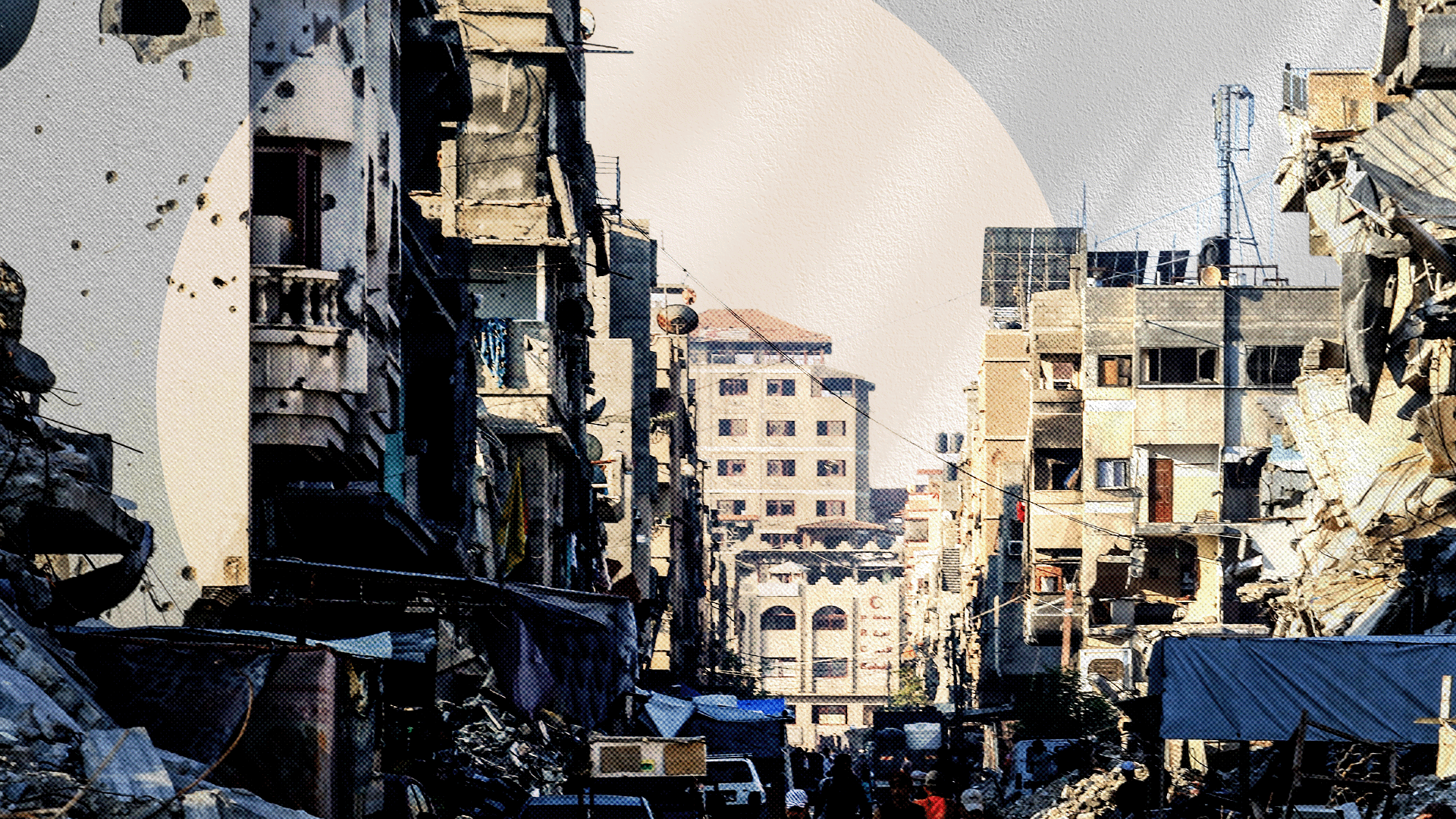ICC opens 'war crimes' investigation in West Bank and Gaza
- Published
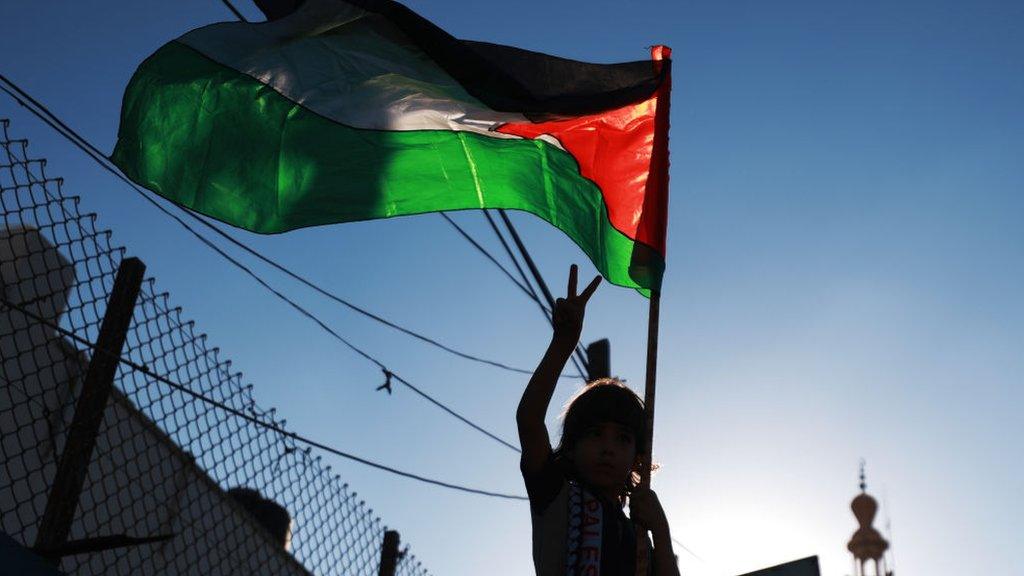
The ICC ruled last month that it could exercise its criminal jurisdiction over the Palestinian territories
The International Criminal Court's chief prosecutor has opened a formal investigation into alleged war crimes in the Palestinian territories.
Fatou Bensouda said the probe would cover events in the Israeli-occupied West Bank, East Jerusalem and Gaza Strip since June 2014.
Last month, the Hague-based court ruled that it could exercise its criminal jurisdiction over the territories.
Israel rejected Ms Bensouda's decision, while Palestinian officials praised it.
The US expressed disappointment and opposition to the move.
The ICC has the authority to prosecute those accused of genocide, crimes against humanity and war crimes on the territory of states party to the Rome Statute, its founding treaty.
Israel has never ratified the Rome Statute, but the court ruled that it had jurisdiction because the United Nations secretary general accepted the Palestinians' accession to the treaty in 2015.
Israel occupied the West Bank, Gaza and East Jerusalem in the 1967 Middle East war. Palestinians claim the territories for a future independent state.
What prompted the prosecutor's decision?
In a statement issued on Wednesday, external, Ms Bensouda explained that her office was obliged to act "where a state party has referred a situation" to it and "it is determined that a reasonable basis exists to commence an investigation".
Ms Bensouda said she had carried out a "painstaking preliminary examination" that lasted close to five years and promised that the investigation would be conducted independently, impartially and objectively, without fear or favour.
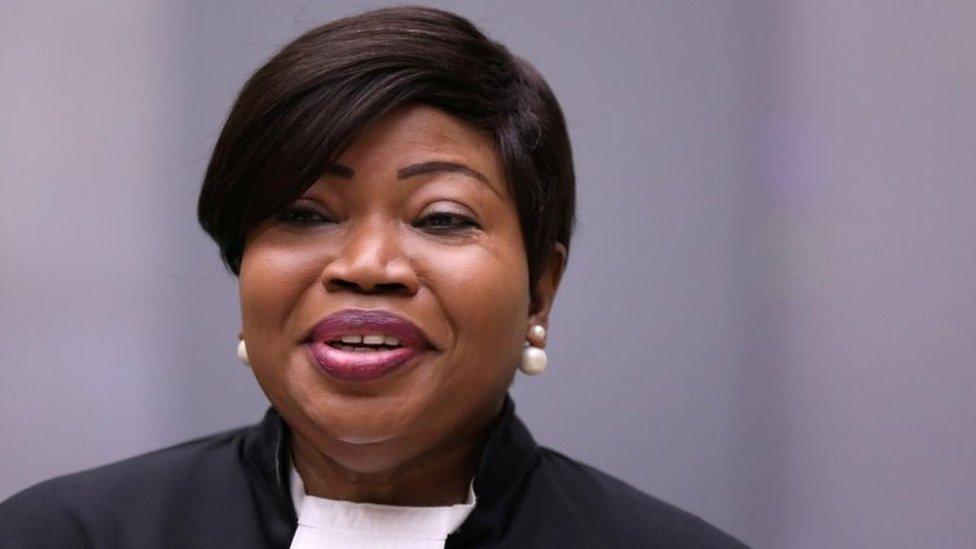
Fatou Bensouda said the "central concern must be for the victims of crimes"
"We have no agenda other than to meet our statutory duties under the Rome Statute with professional integrity," she said, noting that she had declined to investigate the 2010 killing by Israeli troops of 10 Turkish activists on the Gaza-bound ship Mavi Marmara.
"In the current situation, however, there is a reasonable basis to proceed and there are admissible potential cases," she added.
Ms Bensouda, who will be succeeded by British prosecutor Karim Khan in June, also stressed that the "central concern must be for the victims of crimes, both Palestinian and Israeli, arising from the long cycle of violence and insecurity that has caused deep suffering and despair on all sides".


The prosecutor's decision came moments before Israeli Prime Minister Benjamin Netanyahu's glitzy online election campaign launch.
He used the stage to give an excoriating response, saying the probe was an anti-Semitic attack on the only Jewish state.
This approach will continue in public - to undermine the court itself. Behind the scenes though, concerned officials are working to offset, delay and limit its impact. They will try to show that Israel can investigate itself and that an outgoing prosecutor is tying her successor's hands.
They will roll out a plan - understood to be no-expense-spared - to minimise the chance of any future arrest of officers or politicians abroad. Israel's defence minister has acknowledged that "hundreds", including himself, could be at risk, adding: "We will take care of everybody."
And they will rely on the US and other allies for backing. But the level of rhetoric suggests Israel's leadership feels increasingly worried by the progress of the case.

What has been the reaction?
Israeli Prime Minister Benjamin Netanyahu said the ICC's decision was "the essence of anti-Semitism and the essence of hypocrisy."
"It found that our brave and moral soldiers, who are fighting the most brutal terrorists on earth, are, of all people, war criminals."
"The court, which was established to prevent a recurrence of the horrors perpetrated by the Nazis against the Jewish people, is now turning against the state of the Jewish people," he asserted.
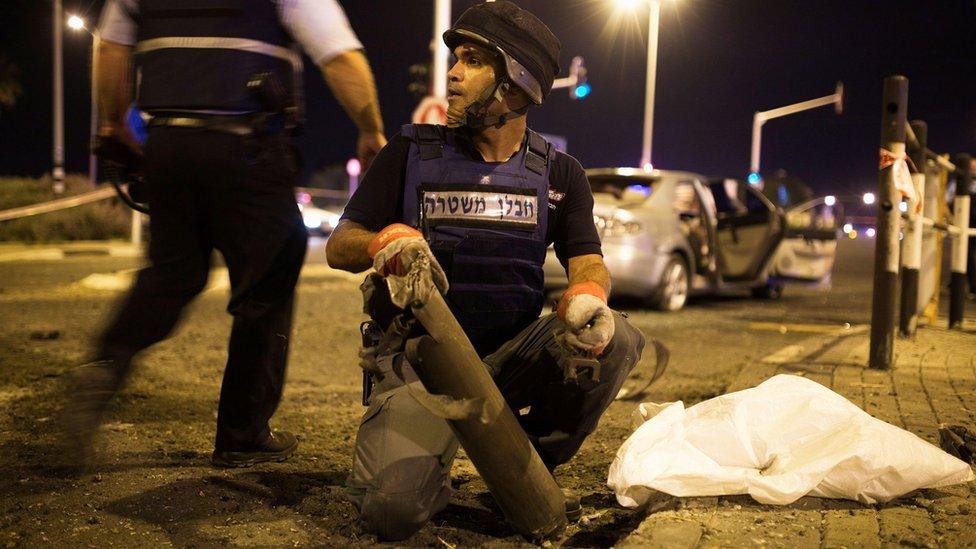
Ms Bensouda has said Palestinian militants could face prosecution for intentionally attacking Israeli civilians
US State Department spokesman Ned Price criticised the decision.
"We firmly oppose and are disappointed by the ICC prosecutor's announcement of an investigation into the Palestinian situation," he said, adding the US "will continue to uphold our strong commitment to Israel and its security including by opposing actions that seek to target Israel unfairly".
Palestinian Authority Foreign Minister Riyad al-Maliki said: "The crimes committed by the leaders of the Israeli occupation against the Palestinian people - which are ongoing, systematic and widespread - make this investigation necessary and urgent."
The militant Hamas movement, which controls Gaza, welcomed the decision as "step forward on the path of achieving justice", while also defending its actions as "legitimate resistance".
Campaign group Human Rights Watch said "all eyes" would be on incoming prosecutor Karim Khan to "pick up the baton", and that "ICC member countries should stand ready to fiercely protect the court's work from any political pressure".
What alleged crimes are being investigated?
Ms Bensouda's preliminary examination is believed to have focused on issues such as Israeli military operations in Gaza and the construction of Jewish settlements in the West Bank - which most of the international community consider illegal under international law, though Israel disputes this.
When the Palestinians asked to accede to the Rome Statute, they recognised ICC jurisdiction for the purpose of prosecuting alleged perpetrators of crimes from 13 June 2014 onwards, external.
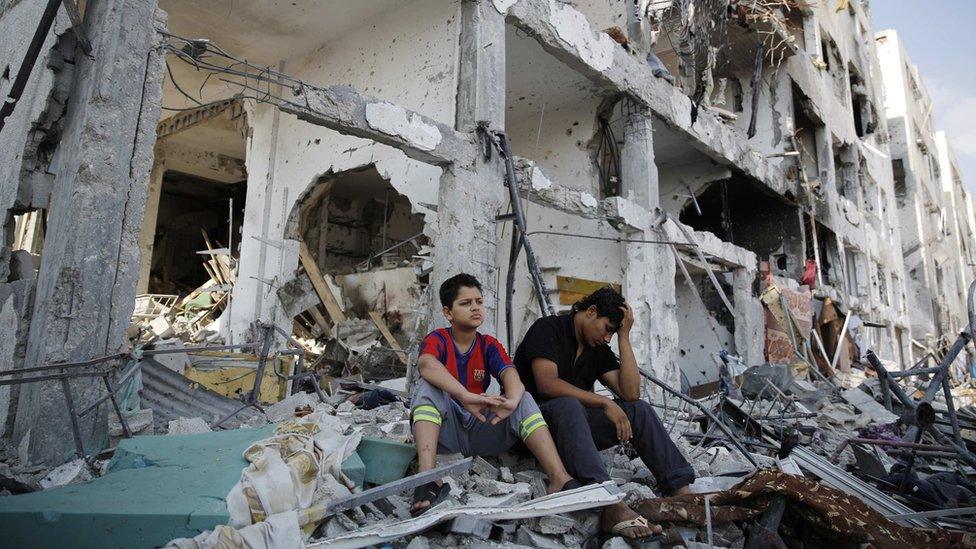
The ICC investigation will include the 50-day conflict between Israel and militants in Gaza in 2014
That is one month before a war erupted between Israel and Palestinian militants in Gaza. In the fighting, 2,251 Palestinians, including 1,462 civilians, were killed while on the Israeli side 67 soldiers and six civilians were killed.
Following the preliminary examination, Ms Bensouda said there was a reasonable basis to believe that war crimes were committed in the context of the war, external, and that charges could be filed against Israel Defense Forces (IDF) personnel and members of Hamas and other Palestinian armed groups.
The prosecutor also concluded that there was a reasonable basis to believe that in the context of Israel's occupation of the West Bank, members of the Israeli authorities had committed war crimes.
- Published7 February
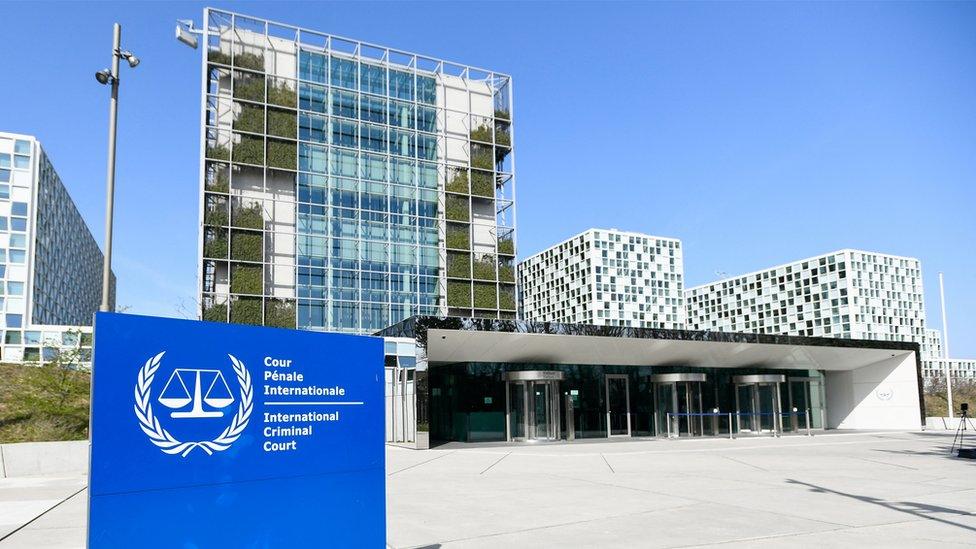
- Published26 June 2023
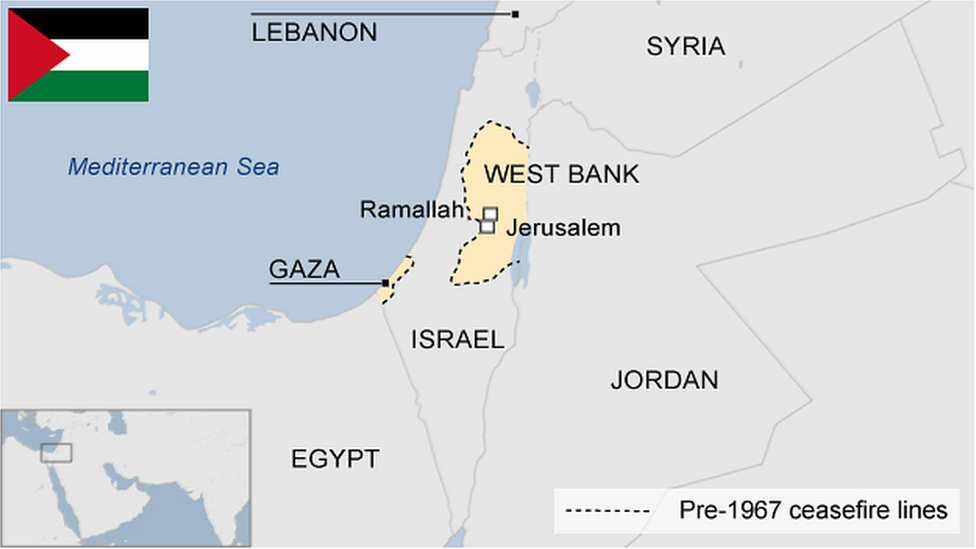
- Published22 May 2018
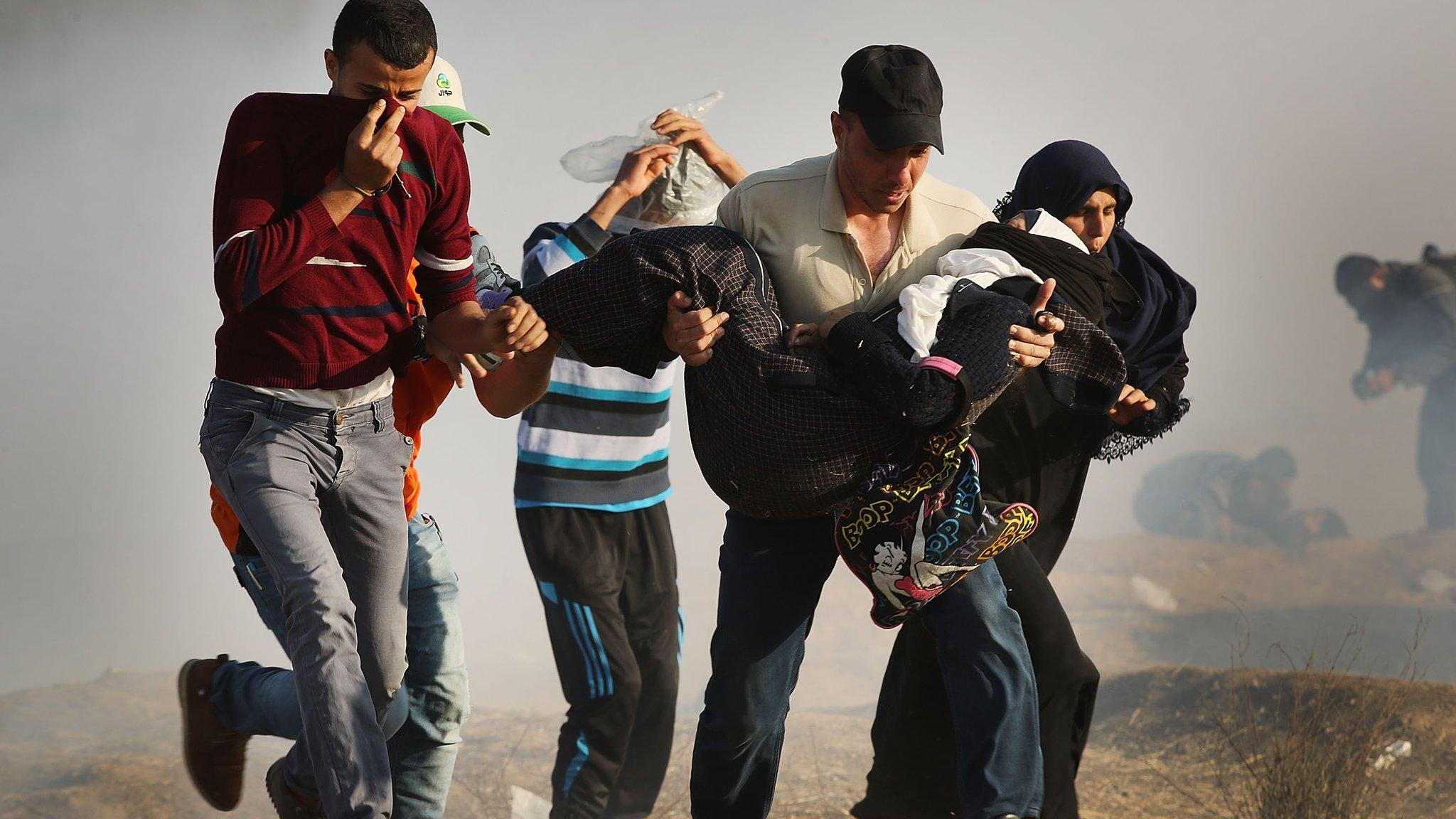
- Published17 May 2018
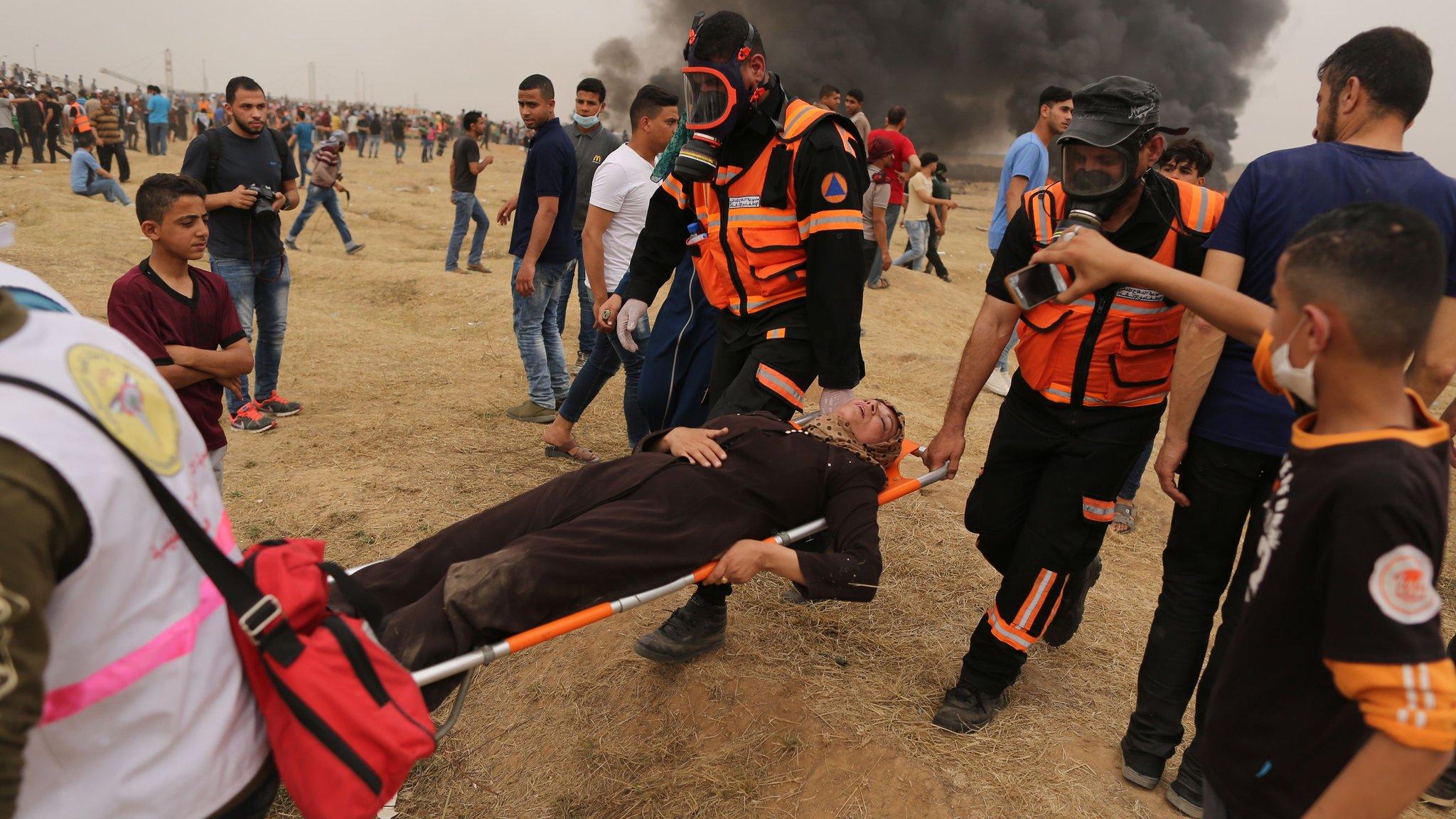
- Published16 January
